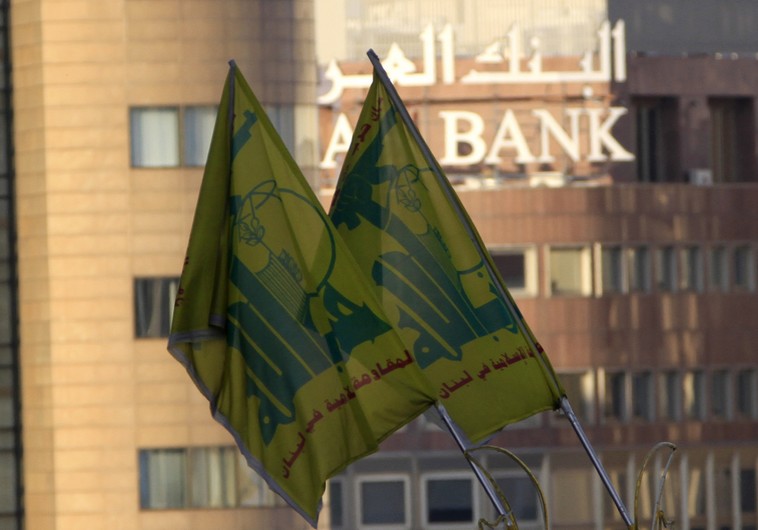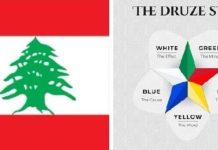Analysis/How Lebanon Stopped Being a Country – and Turned Into a Bankrupt Corporation
زفي بارئيل/هآرتس: كيف لم يعد لبنان دولة وتحول إلى مؤسسة فاشلة
Zvi Bar’el/Haaretz/October 05/2019
Rockets are not the only threat to Israel from its northern neighbor: The country is in a deep economic crisis that could lead to its collapse and civil revolt.
“The people want to topple the regime;” “The cabinet and the parliament are all thieves;” “We have nothing to live on.” The famous placards from the Arab Spring have been dusted off, waved in the streets of Beirut, Tripoli and other Lebanese cities.
We are not witnessing mass demonstrations. They’re a few hundreds, holding signs in front of the parliament building or government offices to rouse the country’s decision makers from their late-summer slumber.
Lebanon is in the midst of a deep financial crisis that could lead to its collapse unless it quickly finds new sources of funding for its massive, $86 billion public debt – around 150 percent of gross domestic product. It must also persuade investors to build new factories that could hire the tens of thousands that are unemployed and boost its exports. Above all, it must eradicate the deep-seated governmental corruption, which swallows billions from the country’s revenues.
Lebanon’s ruined economy is the overarching theme of the demonstrations, but this week, the immediate spark was fear of a shortage of dollars. The government insists there is no such thing, but that isn’t how things look in the marketplace. People who tried to withdraw the U.S. currency weren’t able to do so. Merchants, gas stations and flour mills couldn’t get the dollars they need to pay their suppliers.
To compensate for the lack of dollars at the official exchange rate – 1,507 Lebanese pounds to the dollar – importers turned to money changers and gray-market lenders, to whom they pay 1,550 to 1,600 pounds per dollar. They then pass the higher costs onto their consumers.
At least for a while. Even the black-market money changers cannot supply the demand.
Gas station owners had to issue threats for the government to finally agree for them to buy fuel in Lebanese pounds. But this is a temporary solution, and it also eats into the central bank’s foreign currency reserves, which have already plunged by 15 percent since the start of the year.
The urgent need for transparency
A short-term solution is within reach, as Lebanon has already received commitments from donor states for $11 billion in loans. But that injection is stuck until a major and long-awaited reform program gets under way.
The government’s budget was only approved in June, after months of debate. It calls for reducing the number of government employees, a freeze on filling vacant positions and a three percent cut in pension payments to retired civil servants and soldiers. It also requires members of parliament to pay customs duties on their cars and imposes higher taxes on interest earned from bank deposits. But public opposition to these steps and political considerations have so far delayed implementation of this program.
This week, Beirut’s Al-Akhbar newspaper reported on the findings of the council for transparency in the public sector, which stated that in 2017 the government paid tens of millions of dollars to cronies, unsupervised organizations and for projects that were never carried out.
For example, salaries for the oversight committee of the southern council, the body that was set up in part to examine the damage caused by the Second Lebanon War, was $4.7 million – 14 times the entire salary costs for all the members of the council. Consultants in a government organization examining the status of women in society received salaries of $160,000 – 26 percent of the group’s total expenditures. Six employees of the supreme council for privatization received $295,000 in salaries, without any of these bodies ever undergoing an audit.
These are just a few examples from the report – which notes that only 33 public organizations out of 140 responded to the transparency council’s request to provide data on their spending.
No decision is worse than a bad decision
Another example of Lebanon’s broken decision-making process is the country’s electricity supply. Lebanon’s electricity comes mostly from private generators and the public electric company, the largest of all government companies, which suffers from a serious deficit.
The government has still not decided how to deal with the shortage of electricity, with the latest debates revolving around whether to go for a permanent solution that will take a long time to implement – or for temporary measures until a permanent solution can be agreed on. Even the quick fixes under consideration are controversial.
One of the questions is whether to procure electricity through the use of large ships carrying generators, or to install generators on land. The Free Patriotic Movement, the party of President Michel Aoun, and the Future Movement of Prime Minister Saad Hariri, both favor the ships, and have even “fixed” a tender so it would perfectly fit Turkish-made ships. But the tenders’ authority opposes this bidding process because it does not provide equal conditions to land-based electricity production projects.
Ships do not need to pay rent for their anchorages, but the owners of land-based generators will be required to buy or lease land. Someone needs to make a decision as to whether the government will agree to bear those costs to make for fairer conditions. Until then, Lebanese citizens will continue to pay for, and enjoy irregular electricity supply.
This is evidence that Lebanon is on the dangerous road from being a country to becoming a bankrupt corporation. Lebanon’s ability to handle a civil revolt over poor economic conditions that could then be exploited for political and military purposes are under question. Anyone worried about Hezbollah’s powerful arsenal should be even more scared by the deep economic crisis that could very well strengthen the movement’s ability to rule Lebanon.


















